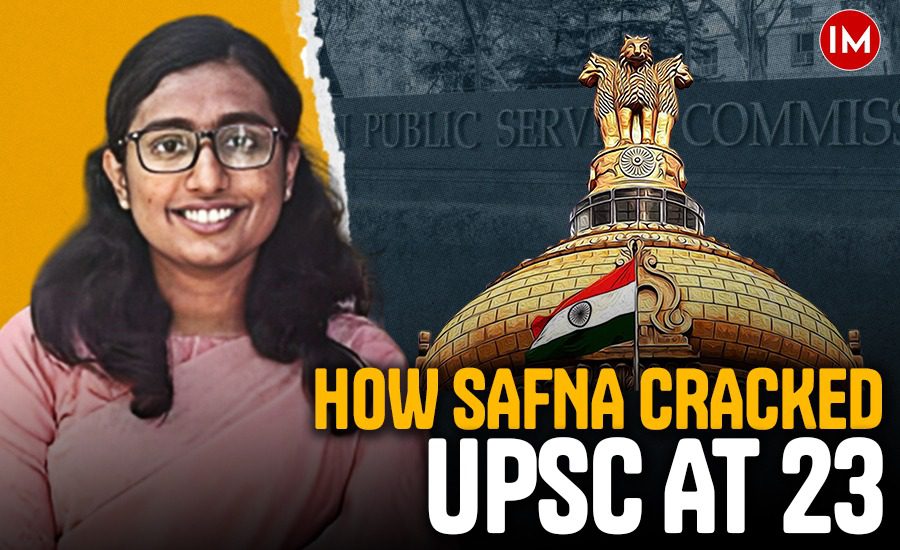Growing up in Valiyavila, Thiruvananthapuram, Safna Nazarudeen was surrounded by the world of public service. Her father rose from the ranks of the Kerala Police, eventually retiring as an inspector. Her mother worked as a typist in the state employment exchange. From an early age, Safna watched the values of discipline, dedication, and community service take shape in her household.
It was around class 8 when she first entertained the idea of joining the civil services, not because she knew the mechanics of the exam, but because she sensed that an IAS officer could do a lot for society.
She attended Kendriya Vidyalaya, excelling academically and choosing the social sciences stream, against her father’s wish for science. Undeterred, she pursued a BA in Economics at Mar Ivanios College, topping the Kerala University in her batch.
CRACKING THE UPSC IN HER FIRST ATTEMPT
In 2020, at the age of 23, Safna cleared the Union Public Service Commission exam in her first attempt, securing All India Rank 45. She became the youngest Muslim woman from Kerala to enter the IAS.
Her preparation followed a rigorous pattern: she turned off social media, spent two hours daily on newspapers, attended coaching classes, and devoted 7-10 hours to self-study every day. She also kept a dedicated notebook to jot down what she studied for weekend revision.
Public speaking was a challenge at first, so she practised by speaking on selected topics daily in front of a mirror, a method suggested by her mentors.
FROM ASSISTANT COLLECTOR TO LABOUR COMMISSIONER
Once she entered the Kerala cadre of the IAS (Batch 2020), Safna was posted in Malappuram district as Deputy or Assistant Collector. Over time, she rose to become the Labour Commissioner, heading the Labour Commissionerate, Government of Kerala (Thozhil Bhavan, Thiruvananthapuram).
Her role now involves dealing with migrant labour issues, irregular employment, unemployment and implementation of labour laws across multiple industries.
In a recent government order, she was also given an additional charge as Director of the Fisheries Department.
VALUES, APPROACH AND LEADERSHIP STYLE
While the public often assumes that bureaucrats are always under strong political pressure, Safna says the reality is more complex. Multiple stakeholders need to be consulted and aligned before solutions that benefit all can be implemented. She says that while busy days are inevitable, there are also comparatively lighter days and that the job offers a mix of responsibility and reasonable balance.
Her early life, seeing a working‐class household, understanding privilege and the importance of service, shaped her commitment. She has spoken of recognising during her school days that she was more privileged than many, and that propelled her to aspire to serve people who were less advantaged.
WHAT HER STORY OFFERS TO ASPIRANTS
- Start early with your goal: Safna’s idea of joining IAS surfaced as a teenager, even without full clarity of the exam system.
- Make your dream your own: It wasn’t family pressure; it was her personal choice, and she owned it.
- Structure matters: A disciplined routine, self-study and regular revision helped build momentum.
- Complement knowledge with skills: She recognised the importance of speaking and presentation early.
- Service mindset: Her ambition was not just personal status but to bring change and fairness for others.
LOOKING FORWARD
At a still young age in her bureaucratic career, Safna’s journey is already remarkable. But there is room ahead for deeper policy initiatives, sectoral reforms in labour, and perhaps district- or state-wide programmes that shape livelihoods and rights. Her trajectory suggests that when the aspiration aligns with preparation and execution, leadership roles in public service open up, and they carry the potential to impact lives.
































